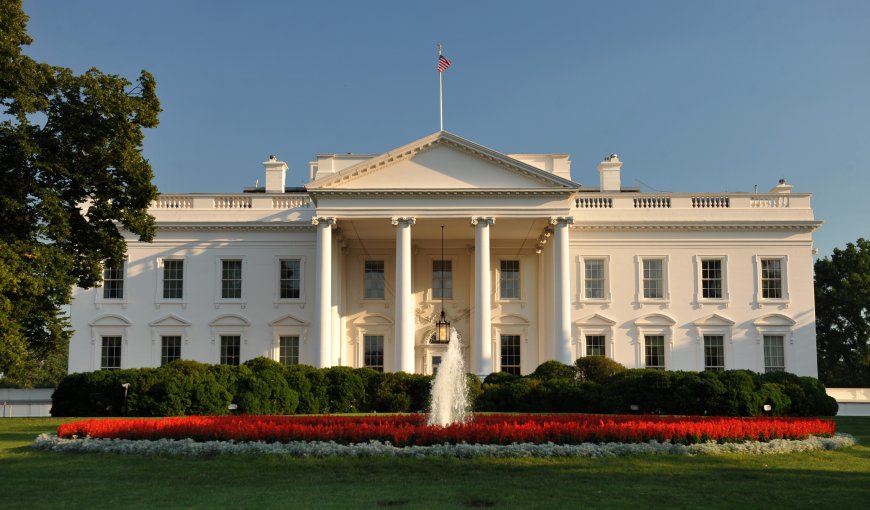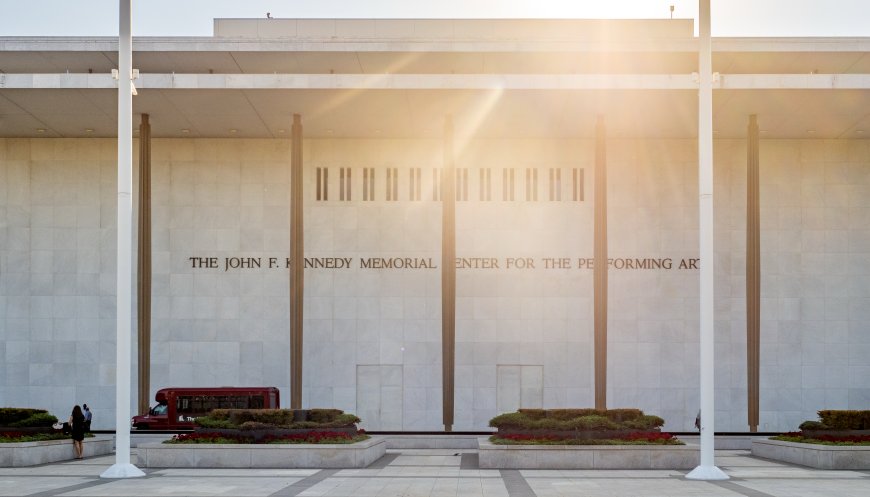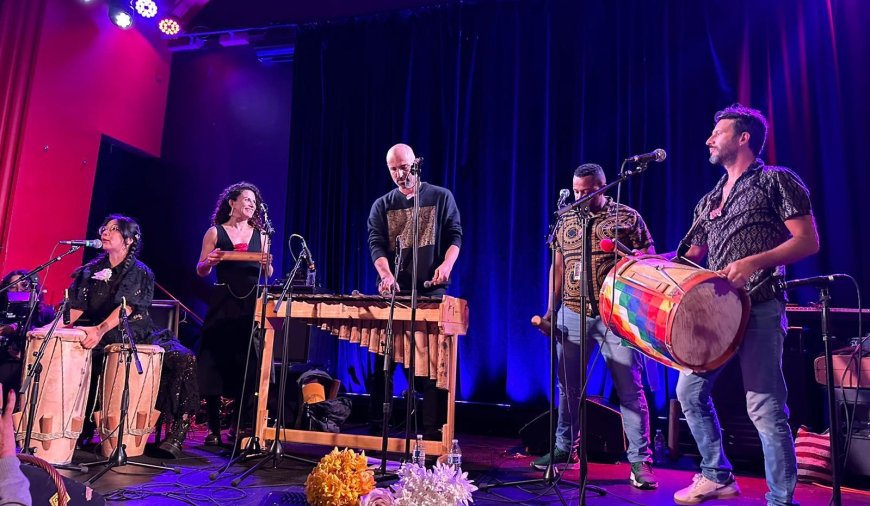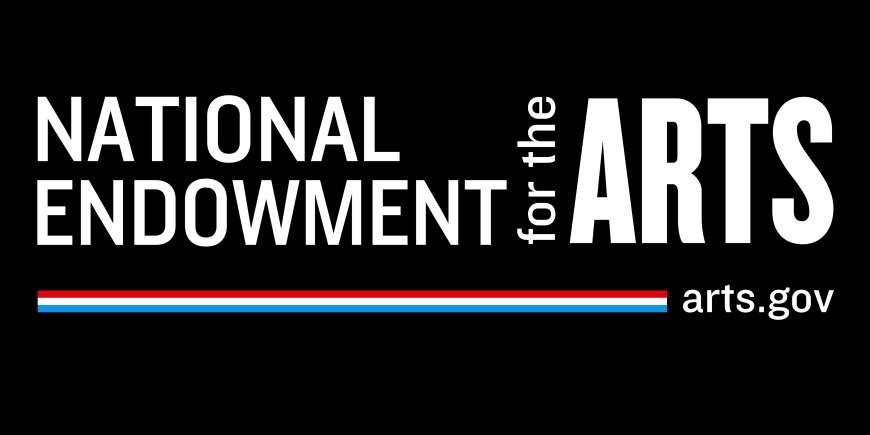
Federal support for the arts in the United States is minuscule. The 2024 budget of $207 million for the National Endowment for the Arts came out to around 60 cents per U.S. citizen. But the financial situation at some performing arts organizations is so precarious that a radical change ordered from Washington, D.C., on Friday, May 2, hit many projects still in progress.
The San Francisco International Arts Festival reported over the weekend that it was notified of the immediate withdrawal of a $20,000 NEA grant at the very moment the Australian troupe Fairly Lucid Productions was flying to the Bay Area to perform at the festival May 8–11.
San Francisco Contemporary Music Players likewise received notice of the cancellation of a $20,000 grant for a May 10 program at Brava Theater set to feature Tania León’s Indígena, among other new and recent works.
In both cases, as with many other NEA grants that were canceled last week, the presentations highlight themes that could be viewed as falling under the umbrella of DEI (diversity, equity, and inclusion). At SFIAF, Fairly Lucid Productions’ show is about “a plague of murders of gay men in Sydney in the 1970s and 1980s.” At SFCMP, Indígena promises to conjure “the spirit of the comparsa, a group of masked revelers who roam the streets of Spain and Latin America during carnival season.”

Coming after several other arts-related actions taken by the Trump administration — including the president becoming board chair of The Kennedy Center in February and implementing a change in programming direction there — as well as broader anti-DEI policies being pursued nationally, the NEA cancellations represent the latest political means test, the most consequential and far-reaching yet for artists and presenters.
Emails from an arts.gov address notifying grant recipients of the cancellations stated that “the NEA is updating its grantmaking policy priorities to focus funding on projects that reflect the nation’s rich artistic heritage and creativity as prioritized by the President. Consequently, we are terminating awards that fall outside these new priorities.”
The New York Times has reported that the emails did include a line about how the NEA intends to “prioritize projects that ‘elevate’ historically Black colleges and universities, and colleges that serve Hispanic students.” But the paper went on to contrast this claim: “Some of those affected expressed skepticism about the email’s nod to support for diversity initiatives, noting that many of the withdrawn grants had been to support work by artists of color.”
This latter view was stated forcefully by SFIAF Executive Director Andrew Wood in his response to the cancellation of his organization’s grant: “Trump will not stop us. The festival is happening and we are moving forward regardless. Everyone has their visas and their plane tickets and, in the same manner as Fairly Lucid Productions, they are coming here to join us and the show will go on.”

In Los Angeles, Cornerstone Theater Company had its $40,000 grant withdrawn. The organization’s leaders told NPR: “The grant was intended to support our ongoing investigation into the relationship between theater and the history and practice of American democracy — a project that we believe is a rigorous inquiry into American Independence — one of the NEA’s changed funding priorities.”
The NEA email to Cornerstone said that the award “was withdrawn for not aligning with the agency’s priority ‘to support the development and production of community-engaged, devised work,’” the NPR report continued.
Since the resignation of NEA chair Maria Rosario Jackson on Jan. 20, the day of President Trump’s second inauguration, Mary Anne Carter, NEA chair from 2019 to 2021, has again been in charge of the agency, currently as senior advisor.
Among other Bay Area organizations reported to have lost their NEA grants: SFJAZZ, Opera Parallèle, TheatreWorks Silicon Valley, American Conservatory Theater, Berkeley Repertory Theatre, Oakland Theater Project, Omnira Institute, the Frameline film festival, The Lab, the magazine ZYZZYVA, and the Richmond Art Center.
KQED reported in January that 2025 was expected to see more than $2.5 million in NEA grants go to Bay Area arts organizations.

According to The New York Times, “at least two versions of the email” from the NEA were sent out. One “said that ‘the tentative funding recommendation for the following application’ had been withdrawn. Those emails went to groups that had already received offer letters and been recommended for grants, but had not yet gotten their official awards.”
Another was “sent to groups whose grants had been approved, and said, ‘This is to inform you that the above referenced National Endowment for the Arts award has been terminated, effective May 31, 2025.’”
An even more consequential development on Friday was the Trump administration’s 2026 budget proposal, which calls for entirely eliminating the NEA, the National Endowment for the Humanities, and the Institute of Museum and Library Sciences.
Just last month, the formerly Elon Musk-headed Department of Government Efficiency cut NEH funds, affecting — in the Bay Area — a digital health archive hosted at UC San Francisco, a project at the Angel Island Immigration Station, a series of community dialogues with Chinese American war veterans, and a UC Berkeley-affiliated story-map about local tribal residents, as KQED reported at the time.
According to the National Humanities Alliance, at least 1,200 NEH grants nationwide were canceled, and many NEH employees received reduction-in-force notices.

In New York, Robert Suttmann, president of the American Federation of Musicians Local 802, the largest local union of musicians in the world, issued a statement about the NEA grant cancellations:
“This is a dark day for the independence of the arts and musicians across the country — and it is an attack on American excellence and creativity. NEA grants have been crucial in establishing the American artistic sector as the premier in the world, providing predictable funding for employers in a world of unpredictability.
“Communities across our nation will be worse off with dwindling resources for musicals, plays, and other performances that were made possible with NEA funding. Importantly, the elimination of these grants is going to hurt arts workers the most, and ultimately, it’s going to mean fewer shows, jobs, and economic activity.
“The arts at their best can heal and bring people together; hurting them only creates more hate and division. We call on our national leaders to guarantee funding of the NEA at $1 per capita, and to ensure stability for our arts organizations by keeping politics out of their funding.”




